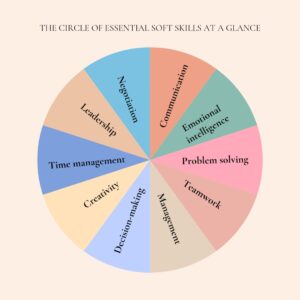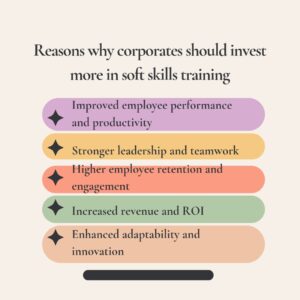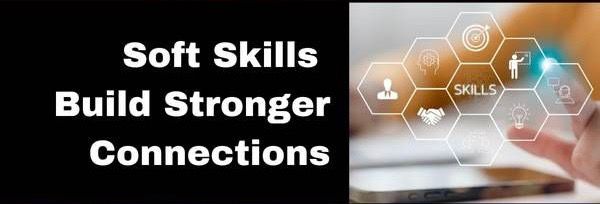The hiring manager is curious if you are the right cultural fit. Your boss wants to know if you can collaborate with cross functional teams and get the job done. Your colleagues are conflicted if they can depend on you and approach you for advice on a new project.
All these workplace scenarios hang by the single invisible thread of soft skills, also referred to as ‘People Skills’. Unlike technical or “hard” skills, which are job specific and measurable, soft skills are personal attributes and social competencies that dictate how effectively you engage and work with your environment. According to the National Soft Skills Association, “85% of job success comes from having well‐developed soft skills, and only 15% from technical skills.” Soft skills are vital not only for a long rewarding career but also for a vibrant, harmonious workplace.
Soft Skills Decoded
Soft skills are invisible connectors. They’re how you interact and form strong relationship with others. These interpersonal qualities and habits shape your communication style, relationship building, and social interactions—making them essential in nearly every part of life. Technical skills get you the interview but soft skills land you the job and help keep it!
The Role of Soft Skills in Achieving Workplace Success
Just the way a machine needs oil to run smoothly, a house needs a strong foundation to hold the walls and roof or the glue that holds things together, having a good set of soft skills impacts the workplace relationships and career advancement in a postive way. On the other hand, weak soft skills can hold you back and negatively affect your ability to establish healthy bonds with others and derail your professional aspirations.
Soft Skills and Their Impact on Workplace Culture
As demonstrated below:
1. Skills such as active listening, empathy, and effective communication foster trust and rapport amongst employees, clients and stakeholders.
2. Abilities like time management, attention to detail, and organization help employees stay on track, meet deadlines, and produce high-quality work.
3. Soft skills encourage employees to take initiative, face challenges openly thus strengthening workplace performance and innovation.
4. In a rapidly evolving market, being resourceful and open-minded allows employees and organization to navigate change more effectively.
5. Conflict resolution, emotional intelligence, and collaboration skills create a supportive environment and turn disagreements into opportunities for learning and growth.
Developing Soft Skills-Your Pathway to Success
Certain soft skills-like communication and empathy may come naturally to some individuals owing to factors such as culture, upbringing or personality traits. However, these are not fixed and they can be learned, developed and improved throughout the life. Soft skills are best developed through an honest self-assessment, feedback and practice.
Ways to strengthen them include:
- Self-reflection-identifying individual strengths and areas of development
- Attending workshops and undertaking courses on topics where you want to improve
- Observing the best practices and behaviours of leaders
- Seeking constructive feedback on your communication and teamwork
- Volunteering for new projects that are out of your comfort zone and test your present skills
The Bottom Line
Soft skills are no longer ‘nice-to-have’ instead they are now a ‘must-have’ for overall success. As organisations evolve with technology and automation, 93% of employers say that soft skills play a crucial role in hiring decisions. Ability to creatively problem-solve, navigate project challenges with ease, adapt to changes quickly, foster a positive and inclusive culture leading to successful communication, collaboration and productivity will be key differentiators in shaping careers and leaders of the future.







Leave a Reply